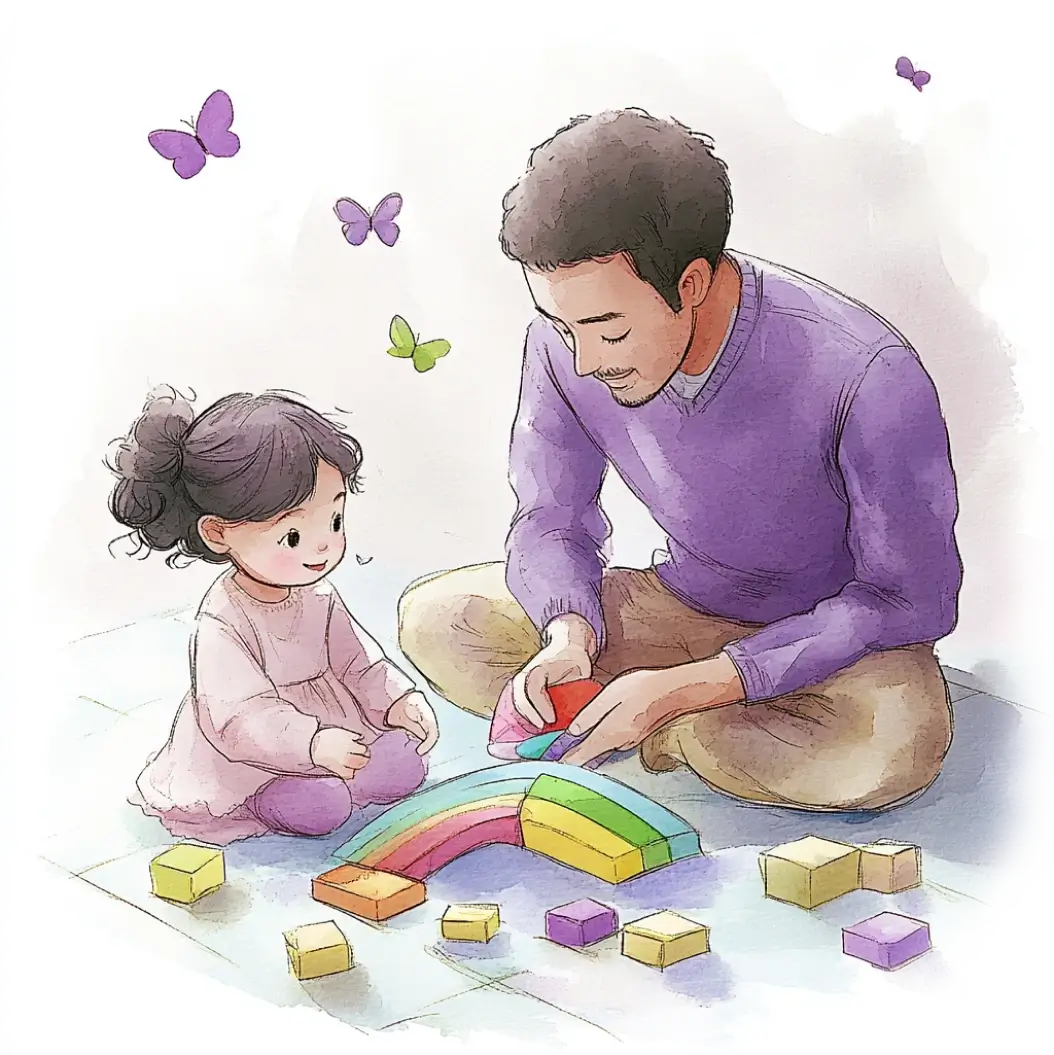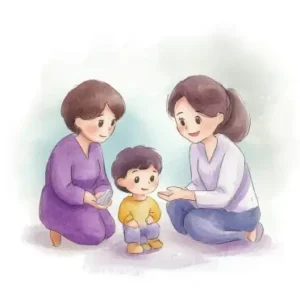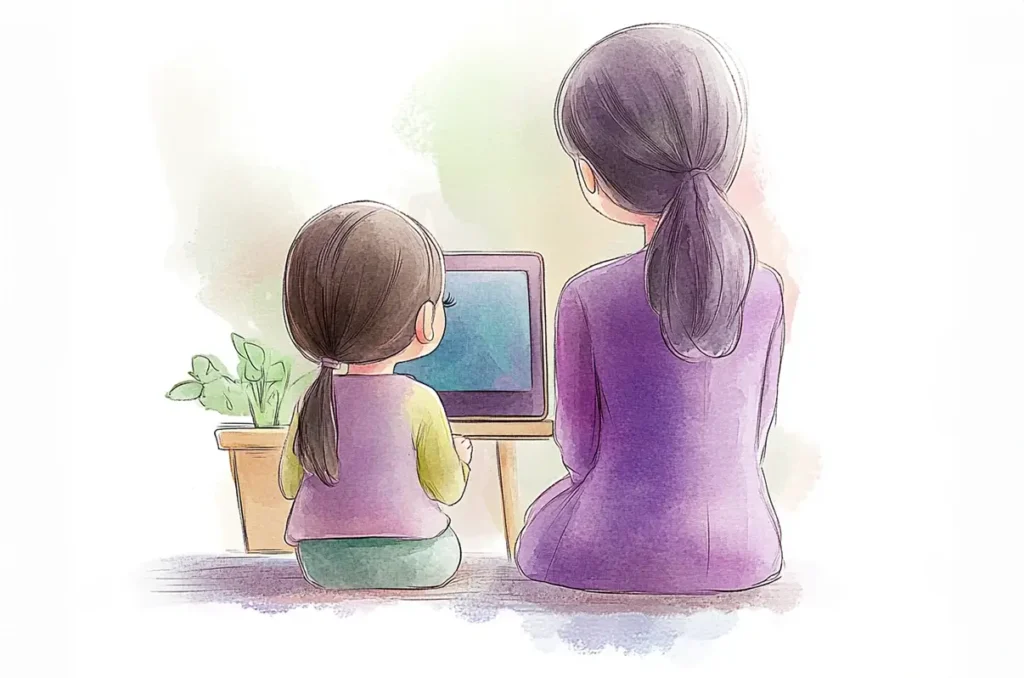Our ABA Therapy
Opya offers personalized early intervention ABA therapy to make a meaningful difference in the lives of young children diagnosed with autism.
We focus on building essential daily living and social skills, while addressing challenging behaviors—all to support your child’s growth, independence, and school readiness.

Applied Behavior Analysis (ABA) Therapy
Our mission is to prepare young children diagnosed with autism to reach their full potential while making the ABA therapy experience as easy as possible for parents and caregivers.

ABA is highly customizable to the needs of the individual child

Early Intervention ABA
Opya's Approach to ABA Therapy
Through consistent ABA treatment sessions with their care team, children can make significant progress in key areas to achieve school readiness:
- Language and Communication Improvement
- Social Abilities and Skills Development
- Maintenance Behaviors Development, e.g., self-control
- Problem Behaviors Reduction, e.g., self-harm

Caregiver Training and Collaboration

Complementary Therapies to ABA
We believe in a multidisciplinary approach to treat the whole child, combining ABA therapy with speech and occupational therapies as needed.
At Opya, we create individualized treatment plans that address each child's unique needs and support their overall development. This enables us to provide the most effective and holistic care for each child.
Speech Therapy
Speech therapy can help children diagnosed with autism better understand and use spoken language in a social context, developing critical communication skills and improving social interactions.

What is Speech Therapy?
Speech therapy treats speech and communication disorders. It can help children with autism develop critical communication skills, improve social interactions, and reduce potential problem behaviors.

Early Intervention Speech Therapy
It can help a child’s communication deficits leading to significant gains in communication, social skills, and quality of life.
Challenges Addressed by Speech Therapy
Speech therapy can help address challenges and communication deficits that a child with autism may be experiencing.
- Being non-verbal
- Communicating via cries, grunts, shrieks, or hums
- Babbling and producing word-like sounds
- Challenges understanding social and communication cues
- Inability to understand common words in a new context

Developing Speech and Social Skills
Speech therapy can give your child the skills necessary to establish relationships, engage in social interactions, and effectively function in everyday life.
We will work with your child to help them better articulate their words, their speech fluency, and their understanding and use of gestures and facial expressions.
Opya's Approach to Speech Therapy
- Develop age-appropriate communication skills
- Teach alternative communication methods when appropriate
- Improve overall ability to communicate and interact socially with others
- Reduce problem behaviors that may interfere with learning and socialization
Occupational Therapy
Occupational therapy enables children diagnosed with autism to more effectively perform daily functions and activities such as dressing themselves, eating, and playing.

What is Occupational Therapy?
It enables them to better participate in daily activities and interact socially. For children diagnosed with autism, occupational therapy can address difficulties in performing primary daily functions and reduce problematic behaviors.
Early Intervention Occupational Therapy
Starting occupational therapy early when a child’s brain is most malleable results in better outcomes. Early intervention occupational therapy can prevent or reduce the development of secondary problems, such as anxiety and depression, while helping your child develop the skills they will need in a school setting.
Challenges Addressed by Occupational Therapy
- Difficulty dressing and grooming
- Underdeveloped play and fine motor skills
- Challenges eating and toileting
- Lacking communication and social skills

Empowering Children Through Occupational Therapy
Through our delivery of occupational therapy, we aim to help children become more self-sufficient, confident, and better equipped to handle the activities of daily living. Our program focuses on addressing key areas to ensure we are preparing children to be successful in the school setting when the time is right.
Opya's Approach to Occupational Therapy
- Develop skills important for everyday life
- Participate in activities they enjoy
- Feel more independent
- Improve their ability to communicate with others
- Reduce challenging behaviors
Feeding Therapy
Feeding therapy can be an essential part of an autism treatment program to ensure that children diagnosed with ASD develop the skills needed to eat and feed to get the nutrients they need for healthy development and growth.

What is Feeding Therapy ?
It addresses eating challenges that children with autism may experience, from sensory issues to difficulties with chewing and swallowing.
When to Consider Feeding Therapy
Feeding therapy can be impactful if mealtimes are consistently stressful and challenging for your child. If your child is demonstrating behaviors the affect their ability to safely eat and meet their nutritional need, they may benefit from feeding therapy.
Challenges Addressed by Feeding Therapy
Common signs of feeding problems include crying, choking, gagging, not sitting up properly, throwing plates and food, vomiting, and refusing to eat.
- Difficulties chewing or swallowing foods
- Difficulty controlling and moving food in the mouth
- Frequent coughs, gags, and choking when eating
- Frequent vomiting during or right after eating

Supporting a Child’s Healthy Development
Children diagnosed with autism may not get the nutrition they need for healthy development because they will only eat certain foods based on how the foods feel in their mouths. Other children may not yet have developed the skills needed for effective eating and feeding. Whatever the case, feeding therapy for autism can be essential to a child’s autism treatment program.
Opya’s Approach to Feeding Therapy
- Improved nutritional intake for healthy development and growth
- Reduced mealtime stress for both children and families
- Enhanced ability to try new foods and textures
- Increased independence in eating
- Better overall health and well-being